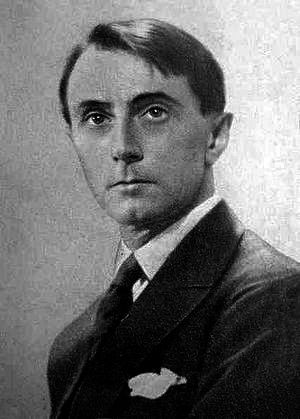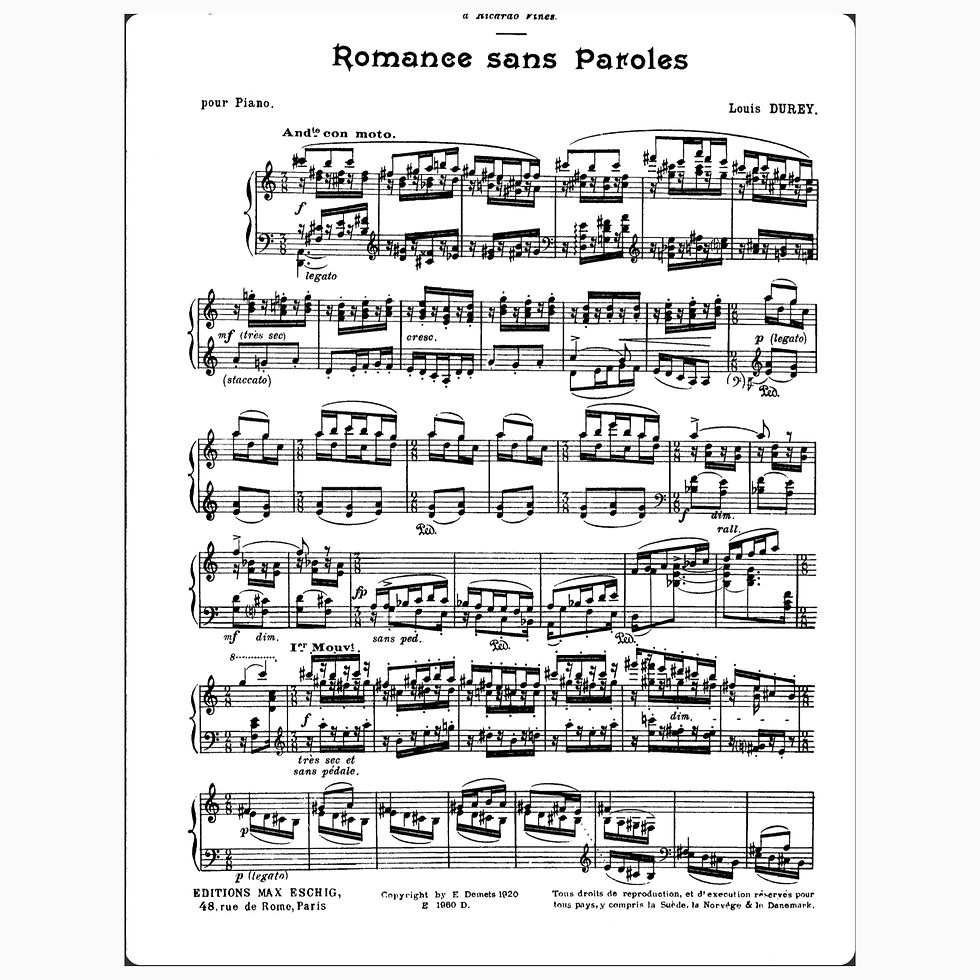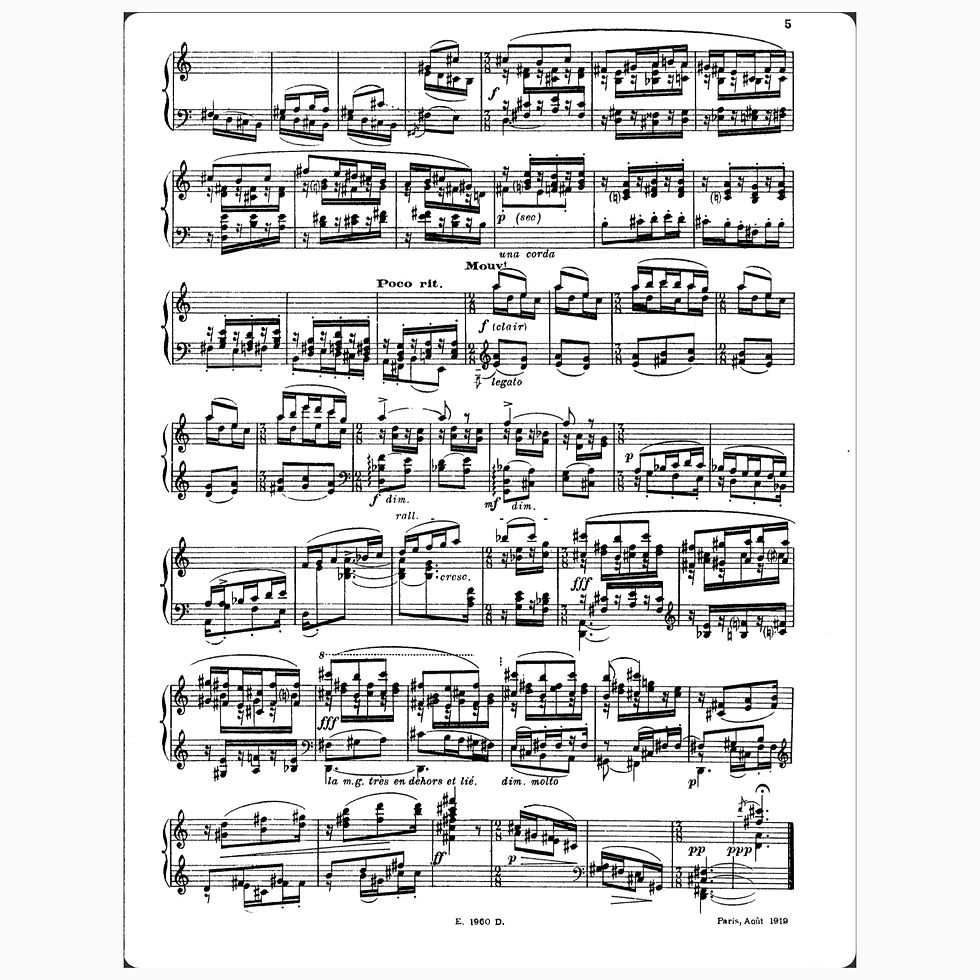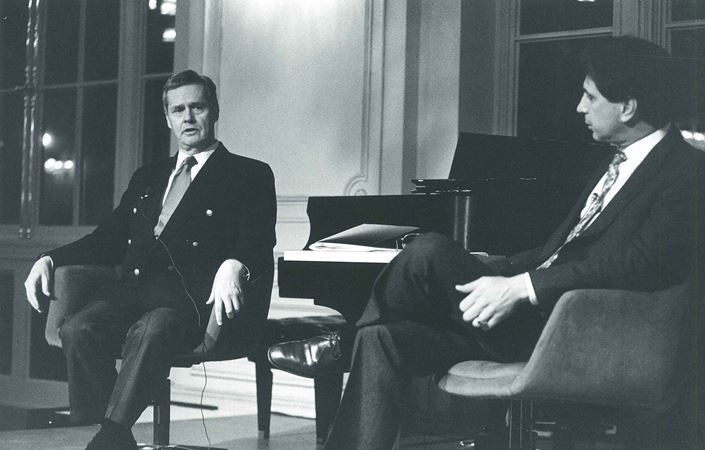Romance sans paroles (Op. 21) — Louis Durey (1888–1979)
- Ziqian Liu

- Sep 29, 2025
- 2 min read

I am so drawn to this piece today, and especially to its final four measures — first in 2/8, then in 3/8 — of Louis Durey’s Romance sans paroles (Op. 21).

A member of Les Six, Louis Durey maintained close ties from the 1910s with the circle of modern Parisian pianists. It was in this context that he dedicated his Romance sans paroles (Op. 21) to the pianist Ricardo Viñes, a key figure in promoting the works of Debussy, Ravel, Satie, and their contemporaries.
Born into a middle-class family that owned a printing workshop, Durey received no formal musical education and showed little interest in composition at a young age. He earned an engineering degree from the École de Hautes Études Commerciales in 1908, but discovering Debussy’s Pelléas et Mélisande awakened his calling for composition. He then took private lessons with Léon Saint-Réquier at the Schola Cantorum and completed several of his first full works before 1914, often inspired by poems of Verlaine, Charles d’Orléans, Henri Régniers, and Francis Jammes.
During World War I, Durey served sixteen months in the French army and composed very little, although this experience strengthened his socialist and communist convictions. From 1917 onwards, the modernist group of composers that would become Les Six formed in Montparnasse, including Arthur Honegger, Francis Poulenc, Germaine Tailleferre, Darius Milhaud, Georges Auric, and Durey himself. In 1921, he published Carillons and Deux pièces pour piano à quatre mains, works characterized by a steady, stripped-down rhythmic style, offering a sense of stability in the postwar context.
Although he remained friends with the group’s members, Durey left Les Six in 1922 due to aesthetic differences. He alternated between stays in Paris and periods outside the capital, notably at a family property in Saint-Tropez, where he married Anna Grangeon in 1929 and became a father. For financial reasons, the family returned to Paris in 1930.
In the 1930s, Durey became politically engaged, joining the French Communist Party and the Fédération Musicale Populaire, serving as its secretary-general from 1937 to 1956. During this period, he suspended composition for about seven years, focusing on choral conducting and musicological work. After World War II, he composed a few film scores but concentrated mainly on politically oriented works.
Durey retired to Saint-Tropez in 1959 and died there in 1979. His Romance sans paroles (Op. 21) remains a valuable testament to his musical sensitivity, pianistic virtuosity, and artistic engagement, reflecting a subtle balance between modernism and lyricism, innovation and emotion.
Originally published on September 28, 2025.





Comments